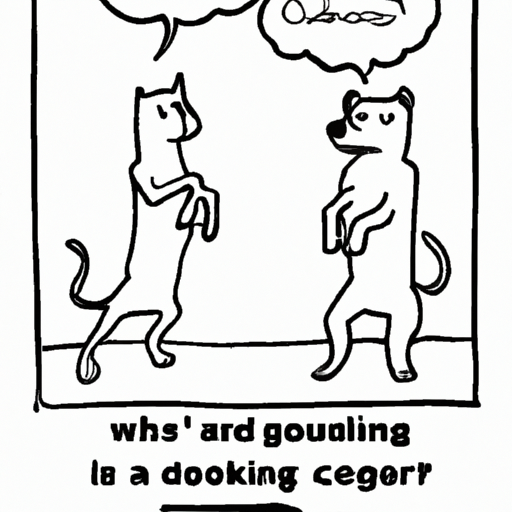“`markdown
Why Do Dogs and Cats Hate Each Other?
Introduction
You’ve probably heard the phrase “fight like cats and dogs” before and wondered why these two popular household pets seem to have such a contentious relationship. But is it really true that dogs and cats inherently dislike each other? Let’s delve into the reasons why these two species might not always get along.
Historical Perspective
First, consider the ancient roles of both species. Dogs, as pack animals, evolved to work together while hunting. Cats, on the other hand, are solitary creatures who traditionally have hunted alone. This fundamental difference in social structure can lead to misunderstandings between the two species.
- Dogs tend to view the family as their pack and can become protective.
- Cats, as independent hunters, may perceive a dog’s playfulness as a threat.
Communication Barriers
Second, think about how dogs and cats communicate. A dog wagging its tail, for example, is often a sign of happiness. For a cat, however, a wagging tail can signal agitation or fear.
- Dogs tend to use body language and vocalizations to communicate.
- Cats rely more on scent and body postures.
| Dog Communication | Cat Communication |
|---|---|
| Tail wagging | Tail flicking |
| Barking | Hissing |
| Licking | Rubbing |
Environmental Factors
Third, consider the environment where the animals live. If a cat feels that its territory is being invaded by a dog, it can lead to hostility.
- Dogs might not respect a cat’s personal space.
- Cats may feel threatened if their safe zones, like high perches or hiding spots, are inaccessible.
Training and Socialization
Fourth, the way that dogs and cats are introduced can significantly affect their relationship. Proper socialization and training can help facilitate a peaceful coexistence.
- Introduce animals slowly and in a controlled environment.
- Use positive reinforcement to reward good behavior.
Individual Personalities
Lastly, remember that animals are individuals, with unique personalities. Some dogs and cats might naturally get along better than others, just like people.
- Some dogs might be more cat-friendly, especially breeds known for their gentleness.
- Some cats might be more dog-tolerant, particularly if they were raised around dogs.
FAQ Section
Q: Can dogs and cats live together peacefully?
A: Absolutely! With proper socialization and understanding of each other’s communication styles, dogs and cats can coexist happily.
Q: What should I do if my dog and cat aren’t getting along?
A: Consider seeking advice from a professional animal behaviorist. They can help identify the cause of the conflict and provide strategies to help your pets get along.
Q: How should I introduce a new pet to my existing one?
A: Introduce them slowly and in controlled circumstances. Make sure each pet has a safe space they can retreat to.
Q: Are there specific breeds of dogs or cats that tend to get along better?
A: While individual personality plays a big role, some breeds of dogs are known for being more cat-friendly, and vice versa.
Q: Can the age of the animals affect their relationship?
A: Yes, animals that grow up together from a young age are generally more likely to get along.
Remember, as a caregiver, you play a crucial role in facilitating a positive relationship between your pets. Understanding their unique needs and behaviors is the first step towards creating a harmonious household.
“`



